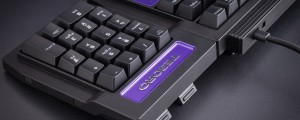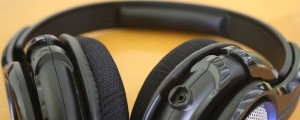
Other World Computing, or OWC, probably isn’t a brand most PC users are familiar with. It makes sense though—their primary audience is the Apple crowd. The company has been around since 1988, and specializes in Macintosh upgrade and expansion products. The company is an Apple Certified Developer and assembles and sells its own hardware products under the Mercury brand name. These products include hard drives, optical drives, RAM, FireWire devices, and other accessories.
The product we’re looking at today is the OWC Mercury Electra 6G 240GB SSD. This is OWC’s mid-tier SATA III SSD, with their high end SSD being the Mercury Extreme Pro 6G.
Technical Specifications
- Available capacities: 60GB, 120GB, 240GB, 480GB
- NAND type: Asynchronous, Tier 1, Grade A
- Controller: SandForce SF-2281
- Maximum read
- Compressible data: 556MB/s
- Incompressible data: 208MB/s
- Maximum write
- Compressible data: 523MB/s
- Incompressible data: 235MB/s
- Random 4K write: 60,000 IOPS
- Warranty: 3 years
The 240GB Mercury Electra sells for the full MSRP of $479.99 on the MacSales web site. Google shopping shows a low price of $459.00. Its performance competitors sell for less—for example the OCZ Agility 3 runs $364.77, while the Corsair Force 3
is $329.99. What does the extra $100 get you? The question was posed to OWC, and their official response follows:
We do sell at full MSRP…..so we do have retailers that sell at street price closer to the Agility 3.
The major difference is in a proprietary hardware design as well as use of far more costly Tier 1/Grade A parts in our SSD.
In most benchmark tests, the Electra outperforms the Agility 3.
Also, by use of such parts and a proprietary design, our SSDs have not been susceptible to the BSOD issue that other SSD brands have experienced….and some to the point of a recall.
Then when you add in our award-winning 24/7 U.S. based support…and our reputation for such compared to other brands….
It’s worth noting that the firmware issue that was causing BSODs was recently fixed for all brands. Basically their argument is ‘you get what you pay for’. Their internals are superior, and their support is top-notch.
Something unique with the OWC SSDs is their 30-day money back guarantee. If, for any reason, you’re not satisfied with the performance of your SSD, you can return it to them for a refund minus 15% restocking fee. Request the return within 21 days and get it to them before day 30 and they’ll waive the restocking fee. No hassles. That’s got to be worth something.
All tests were performed on our Intel-based testbench system:
- CPU: Intel Core i7-2600K
- RAM: 16GB DDR3-1600
- Motherboard: ECS P67H2-A2
- GPU: Radeon HD 6950 2GB
- OS Drive: OCZ Vertex 2 120GB SSD
Benchmarks
SiSoft Sandra
SiSoft Sandra’s physical disk results reflect the specs pretty well. Write latency matches a Vertex 3, while the read latency is about half that of the OCZ drive.
Atto
Under Atto we see performance with highly compressible data—the best case scenario for SandForce-based SSDs. At smaller data sizes, the Mercury Electra struggles a bit, sometimes falling slightly behind the Vertex 2. Once we get to larger data samples though, it’s a completely different story and the Electra performs to its rated specs.
AS-SSD
Just as Atto shows the best case for an SSD, AS-SSD shows the worst case scenario—the data is incompressible, slowing the SandForce controller down. The Mercury Electra performs as advertised for both reading and writing.
CrystalDiskMark
CrystalDiskMark is especially hard on SSDs, again showing a worst-case scenario. About half the time the Electra is only slightly faster than a Vertex 2, but the other it’s quite a bit faster.
PCMark Vantage HDD
Moving to the real-world applications in PCMark Vantage, we see the Mercury Electra is a very capable drive. It holds the lead in every test but one—outperforming even the Vertex 3—and offers a huge improvement over a mechanical hard drive.
Program loading
Crysis load times are so close between SSDs that it’s probably just a matter of reaction times with the stopwatch buttons. Similarly, SSD boot times are so close you’d never notice the difference. The advantage over a mechanical drive is pretty big—in theory, you could turn your computer on, and actually be playing Crysis with the Mercury Electra before an otherwise identical system with a mechanical drive could even finish booting.
File transfers
The Mercury Electra falls right in the middle of the SSD pack here, but this doesn’t mean bad performance. Far from it, especially compared to a standard hard drive—there is a 2.5-4x performance gain.
Conclusion
 Performance-wise, the OWC Mercury Electra 6G is a pretty good mid-tier SSD. Synthetic benchmarks show the weaknesses of asynchronous NAND, but once actual usage comes into play those weaknesses are significantly reduced, if not eliminated entirely. It really does make a good upgrade from a mechanical hard drive. Add in the excellent customer support and satisfaction guarantee and OWC presents a compelling product for Mac owners who want more performance from their computers.
Performance-wise, the OWC Mercury Electra 6G is a pretty good mid-tier SSD. Synthetic benchmarks show the weaknesses of asynchronous NAND, but once actual usage comes into play those weaknesses are significantly reduced, if not eliminated entirely. It really does make a good upgrade from a mechanical hard drive. Add in the excellent customer support and satisfaction guarantee and OWC presents a compelling product for Mac owners who want more performance from their computers.
There is only one real thing holding back the Mercury Electra 6G in the PC realm: its price. There are performance-comparable SSDs that cost less and price-comparable SSDs that sometimes perform better—but they aren’t necessarily Apple-approved hardware. If you have a Mac, want to upgrade your system drive to an SSD, and want parts from an Apple-certified manufacturer, the Mercury Electra is a good choice and has the Icrontic Stamp of Approval.

















 Articles RSS
Articles RSS